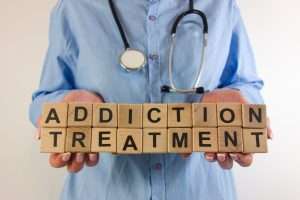Understanding Drug Abuse and Why It Happens
When a person abuses drugs (or other substances), the people around the abuser are the first to know that something has changed in the abuser’s personality, even in their appearance. Most drug users will not admit they have a problem until they try to get off drugs. Drugs, taken for pain, can range from prescribed opioid drugs and other pain medications.
These drugs are often prescribed for pain after an accident resulting in serious injury, or a required surgery and the recovery term. Patients using these prescriptions should follow the prescribed amounts and never take more than what the doctor authorized.
With your doctor’s assistance, wean yourself off these prescriptions as soon as you safely can. Several side-effects you may encounter, are slowed breathing, especially when sleeping, constipation, nausea, confusion, and drowsiness.
Avoid abusing these prescriptions or you may find yourself needing them more and more. Instead, ask your doctor if you can switch to Ibuprofen or Acetaminophen which are easily purchased over the counter (OTC) at any food or drug store. Even these two drugs have their problems that you should watch out for, such as liver, stomach, and kidney issues from taking these for too long.
Illicit drugs refer to drugs bought from a street drug dealer. Fentanyl, already 50 to 100 times more powerful than morphine, is one drug often cited in crime news, as a drug of choice, especially when mixed with morphine or another drug. The mixture (morphine mix) provides a longer and higher level of euphoria which can easily lead to abuse and potential addiction.
What Are the Symptoms of Drug Abuse?
Physical Changes: When a person abuses drugs for a long time, their appearance may show the most dramatic initial changes, such as rapid loss of weight and, in some cases, weight gain. Skin tone and texture may change, and eyes may be bloodshot, with pupils that are dilated or abnormally at a pinpoint. Users may also have less interest in daily hygiene and personal grooming routines.
Personality Changes: This may happen gradually until you realize how much someone has changed from the previous year. The drug abuser is quicker to irritability and has sudden bursts of anger for no reason or is exhibiting bouts of depression more often than before. There may be constant anxiety and if the user has post-traumatic stress disorder (PTSD) from traumatic events in the user’s life, the user has less ability to cope with life events.
Knowing When it is Time to Get Help
If the drug is in pill form, the user may take more and more to achieve the same level of easing the pain. The body changes over time to adjust to the drugs used, meaning the body now needs more drug amounts to reduce the pain.
When all these symptoms are occurring, it shows the user’s body and mental chemistry are being affected by long-term use. It will be hard for the user to simply stop. This level of abuse requires help from the doctor or a rehabilitation treatment program to get off the drugs. The user will have a dual diagnosis evaluation of both the body and mental makeup within a customized treatment program to treat both sides of the problem.
It is at this point that the drug user must be made to understand what changes have occurred, as seen by others close to the user, including yourself. Your loved one may refuse at first to accept what you say. Always be loving when speaking with the user and ask if your loved one is willing to go to the doctor or to visit a drug rehab center in San Diego CA to meet a counselor for a discussion.
You can also speak about how the changes are affecting the whole family and the atmosphere in the home, due to the user’s personality. When one person’s behavior is toxic and becomes difficult to deal with, the rest of the family cannot support the continued behavior and things must change.
If your loved one refuses on both counts, you can call or visit a rehabilitation center yourself and ask to speak with a counselor or doctor. Ask how to help your loved one and ask any questions you have regarding the situation.
Steps for Getting Help
- The drug abuser must be made to understand that the abuser needs professional medical help,
- Visit the family doctor first for assessment or directly visit a rehabilitation center to talk with a counselor,
- Any professional medical counselor will advise that continuing down this road of abuse, will likely lead to death if not treated,
- Determine what medical insurance plan will cover the treatment plan, and
- Sign up to enter the rehabilitation center to start the customized program.
It is important to stress to the drug abuser that the only way to regain a happy and functional life is to go through a treatment program. It is also important that the drug user knows his loved ones will support him or her, every step of the way to recovery.

Call Us if You Need Immediate Help
Our Drug addiction detox center in San Diego can help you with any substance addiction and/or mental issues you might have so you can regain a happy and functional lifestyle again. Call us for a free consultation and to set up an appointment to start getting help as soon as possible. 619-350-8220.


